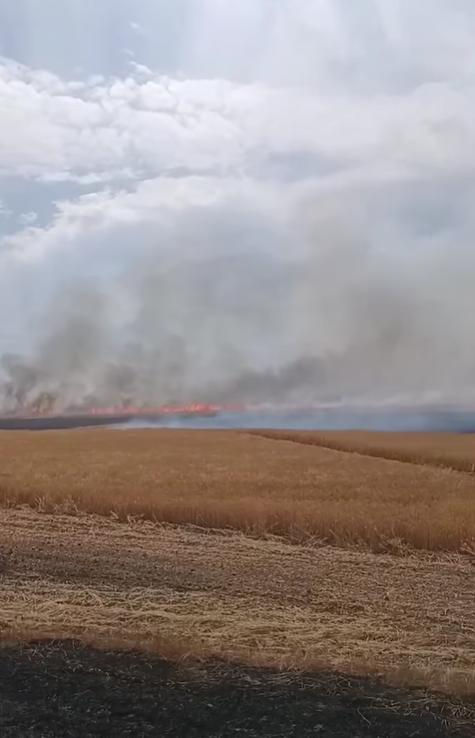Krakow conversations on food security - conversation with with Krakow food stakeholders
- martaserafin
- 17 sie 2025
- 4 minut(y) czytania
Zaktualizowano: 15 wrz 2025
The workshop aimed to support conceptual work on Kraków’s food system resilience, aligned with the Milan Urban Food Policy Pact and international experiences, contributing to the Krakow Development Strategy 2030/50. Convened by Stanisław Mazur, 1st Deputy Mayor of Krakow, the workshop brought together food system stakeholders from across the metropolitan area for the first time!
Krakow food system stakeholder attendees included representatives from Kraków City Hall, Małopolska Regional Government, Malopolska Agricultural Advisory Centre, Krakow branch of the National Agricultural Advisory Centre, Local Government of Michałowice, Jagellonian University, Institute for Food Strategy Grunt (an NGO), Malopolska Agricultural Chamber, Marchewka Mobilna Local Market, media and restaurateurs.
The SFSC4Foodsec project team included: Aiva Apsa Kisemice, Lisa Blix Germundsson, Rafał Serafin, Vilma Atkociuniene, Ausra Zliobaite.
A summary of the discussion is provided below. The key discussion topics were framed within the context of what needs to be included in the update of the Krakow Development Strategy, especially in relation to land use planning implications. The key topics discussed were:
Protection and planning of agricultural land within Kraków.
Role of small scale, non-industrial local agriculture in urban food policies.
Urban food initiatives: city farms, community gardens, school gardens, markets.
Integration of food-related actions into spatial and strategic planning.
Support for local farmers and demand creation for locally-produced food.
Food governance that recognised the multiple jurisdictions and stakeholders involved.
Central to the discussions was the central concept of the updated strategy “Miasto Bliskie – Bliska Żywność” [Local food for the 15 minute City], emphasizing proximity of both food production and consumption. Participants discussed to what extent the City of Kraków should actively protect agricultural land within its borders and how urban planning could integrate food production spaces such as urban farms, school gardens, and community plots. The workshop highlighted the value of sustaining small-scale, non-industrial farming in and around the city as a , foundation for urban food policies.
A recurring theme was the need for systemic integration across many areas of concern—linking landuse planning, logistics, consumer behaviour, and policy frameworks to help move towards greater food security, sovereignty and sustainability. Discussion focused on the need to support local farmers, build demand for local products, and improve logistical infrastructure to make local food more accessible and more price-competitive.
The workshop concluded with a consensus on the need for regular, food stakeholder meetings to foster collaboration and problem-solving. A food forum needs to involve the Mayor of Krakow, the Marshal and the Voivode of the Malopolska region There is much to be done to define in practical terms how agricultural land protection is formulated in city planning documents and in recognizing local food supply chains as constituting critical infrastructure with markets, logistics hubs, ,farm shops and so. This would enable the City to access national defence and resilience funding.
The idea of establishing a regional agricultural exchange with public ownership has already been proposed as a key investment that will support both wholesale and retail distribution. But funding and location has not yet been secured.
Recommendations to be considered in the updating of the Krakow development strategy
Regular Stakeholder Meetings: Establish a regular forum for institutions and individuals involved in food production and distribution across the Kraków Metropolitan Area.
Preservation of Agricultural Land: Maintain and plan for agricultural and green recreational mosaics, especially in eastern Kraków, and assess their production potential.
Define Agricultural Land Protection in City Strategy: Include clear provisions in the Kraków Development Strategy 2030–2050 and local land use plans.
Recognize Local Food Infrastructure as Critical: Advocate for government recognition of local food supply chains as critical infrastructure.
Support for a Regional Agricultural Exchange: Initiate and reserve land (15–30 ha) for a state-owned agricultural exchange serving Krakow’s wholesale and retail needs.
Improve Logistics for Local Products: Invest in experimental organizational and IT systems to address inefficiencies in transport and packaging.
Promote Locally-produced food in Krakow: Encourage individual, institutional and business consumers to buy locally-produced food.
Certify Local Food: Utilize pilot projects to develop certification systems for attesting to origin, authenticity and quality of local food.
Use Public Procurement to grow a market for locally-produced food. Adjust procurement laws to favor local, chemical-free food for public institutions, including schools
Expand Direct Sales Channels: Support markets, producer shops, cooperatives, and other alternative distribution models for individual and joint farmer-centred sales.
Revise Market Lease Agreements: Ensure new lease terms for City markets favor local producers and enforce certification standards.
Clarify Municipal Responsibilities: Streamline competencies within the city administration regarding food system elements.
Encourage Prosumer Models: Promote collaboration between producers and consumers in creating novel food supply and distribution systems.
Organize Agricultural Fairs: Host regular events (e.g., on Błonia) to showcase locally-produced food and counteract industrial food advertising dominance.
Include Food Accessibility as a criterion in Urban Planning: Recognize vegetable markets and shops as essential services in “15-minute city” planning models.
The draft version of the Krakow Strategy 2030/50 relating to food is provided here. This fragment is part of the whole strategy document, which was submitted to the Mayor on 31.07.2025 and will now go forward for public consultation. The final version of the Strategy is to be adopted by Krakow City Council by end of 2025.




Komentarze